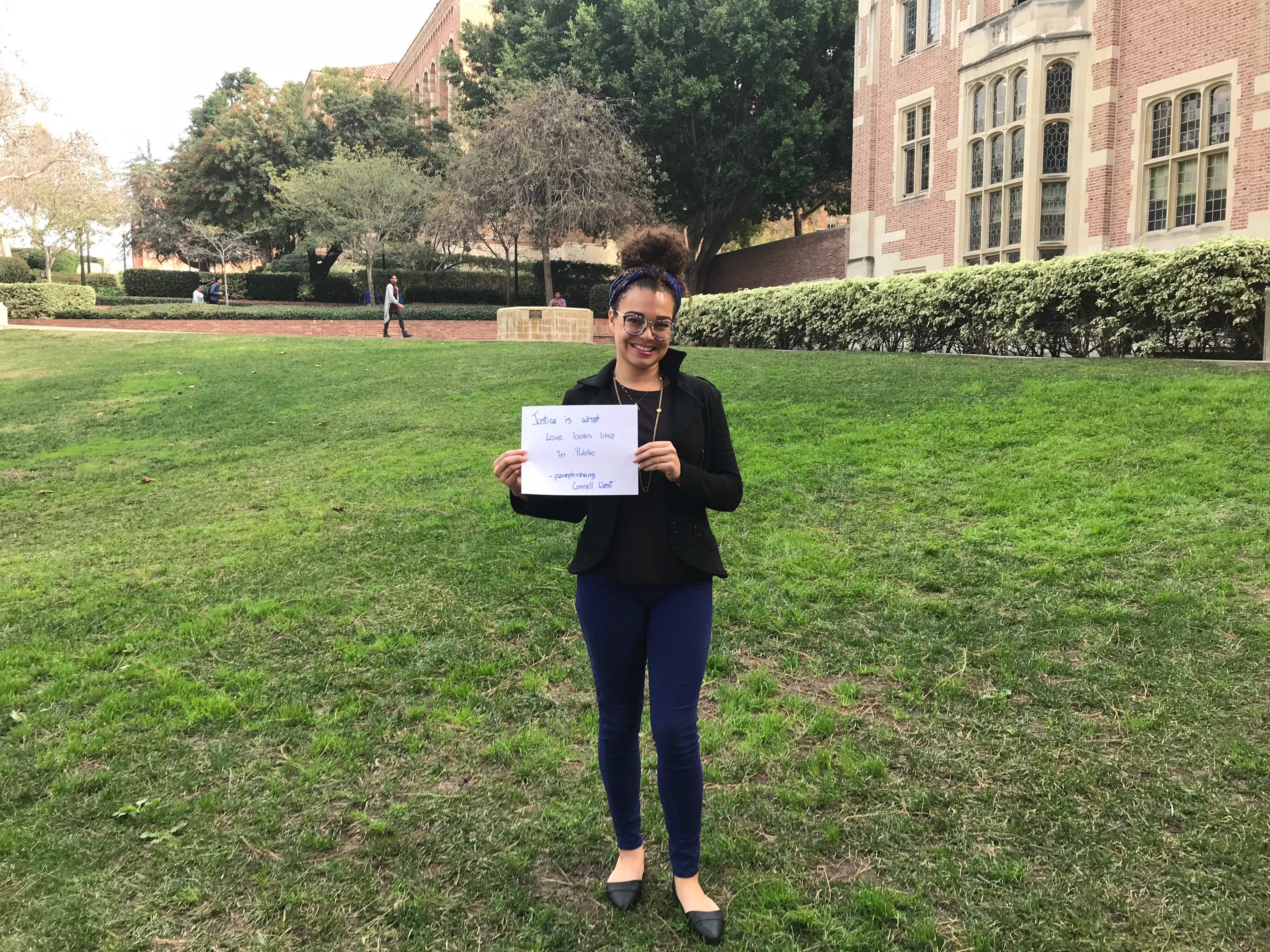Featured UCLA Feminist: Bianca Beauchemin

Photo by Lia Cohen
Bianca Beauchemin is a third-year PhD candidate in gender studies. Her research addresses questions around deciphering sexuality, with a focus on disrupting masculinist discourses of the Haitian revolution and the role of women and sexuality in attaining freedom.
Bianca became passionate about feminism in high school. Her favorite subject was history, but she realized early on that she was almost always learning about men. She questioned her teachers, pressing them for answers about what women were doing during these times and why they were erased from common histories. Her teachers engaged with her inquiries and introduced her to the concepts of patriarchy and misogyny and the way they have shaped our record of history.
Inspired by her studies, Bianca was eager to learn more and pursued bachelor’s degrees in political science and psychology at McGill University before transferring to York University for a bachelors in women’s studies. Bianca then earned a master’s degree in gender studies at Queen’s University and is now pursuing a PhD at UCLA in the same field.
For Bianca, feminism is not simply about equality, but rather about justice for marginalized communities and disrupting processes that constantly make things unequal. She believes feminism is a communal effort, not something you can do alone.
The daughter of a Haitian mother, Bianca’s research looks at the Haitian revolution and the way in which freedom can read through sexuality. More broadly, she studies the revolution as a model of resistance and liberation. Haiti has been talked about a lot in the news recently in reference to President Trump’s recent comments, and Bianca doesn’t think it’s a coincidence that Haiti is always painted in such a negative light. Haiti is the only country with a slave rebellion that liberated itself to found a state, a story that is threatening to other colonial narratives and thus has largely been covered up. Part of her work is to bring light to this story, to the way people fight for freedom, and how the fight is raced, gendered, and classed.
Feminism has impacted everything from Bianca’s professional and academic career to her activism and the way she views the world. To her, feminism is about fostering critical thinking skills. Engaging in feminist practices has changed the way she approaches both her scholarship and day-to-day activities in everything from writing her dissertation to relaxing. She says she can’t even watch a television show without noticing problematic narratives, as feminist critique and discourse applies to so many parts of life and is hard to unsee once engaged.
Bianca is hopeful but also slightly skeptical about the future of feminism. She dreams of a strong future of resistance and justice immersed in feminism, but is wary about the commodification of feminism and current discourses in popular culture. She doesn’t want feminism trending if people don’t engage with what it means. To her, self-proclaimed activists sporting Louis Vuitton purses with feminism written on them are commodifying feminism more than resisting oppression. She believes the end goal of this kind of “popular feminism” is to work within existing systems, not to foster a more just world by challenging inequitable frameworks.
Bianca imagines an intersectional feminist future, one where people are trying to dismantle imperialism, capitalism, supremacy and other harmful systems that marginalize people worldwide. Make sure to catch her around campus where she is conducting groundbreaking research and teaching students about the power of feminism while fighting the patriarchy.




